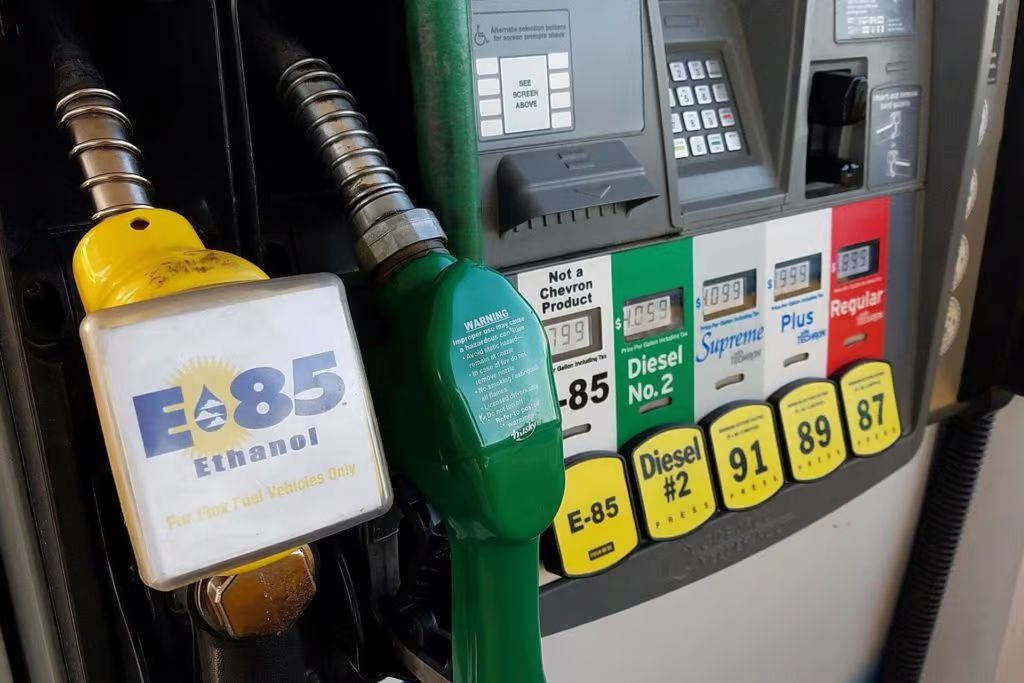Brazilian Ethanol

Brazil is one of the world's leading producers of ethanol, particularly from sugarcane, which makes it a key player in the global biofuel market. Here's an overview of ethanol and E85 fuel from Brazil:
- Ethanol in Brazil is primarily produced from sugarcane, making it more sustainable and efficient compared to ethanol made from corn, which is common in the United States.
- Sugarcane ethanol is considered a low-carbon biofuel, as it significantly reduces greenhouse gas emissions compared to gasoline. The lifecycle emissions of sugarcane ethanol are much lower because sugarcane absorbs CO2 during growth.
- Ethanol production from sugarcane also generates bagasse (residue from sugarcane), which is used as a bioenergy source to power ethanol plants, further enhancing its sustainability.
- Ethanol is commonly blended with gasoline in Brazil, with the most typical blend being E27 (27% ethanol and 73% gasoline). Many vehicles in Brazil are "flex-fuel," meaning they can run on pure ethanol (E100) or any blend of ethanol and gasoline.
- E85 Fuel is a blend of 85% ethanol and 15% gasoline, commonly used in flex-fuel vehicles. While E85 is widely used in the U.S., it is less common in Brazil, where E100 (pure ethanol) is more prevalent. However, E85 can still be part of the ethanol fuel spectrum in Brazil, especially in export markets.
- E85 burns cleaner than regular gasoline, reducing emissions of pollutants and greenhouse gases. It has a higher-octane rating, which can improve engine performance in compatible vehicles.
- Composition: E85 has 85% ethanol and 15% gasoline, while E100 is pure ethanol.
- In Brazil, vehicles primarily use E100 or lower ethanol blends, making E85 more relevant in international markets or specific scenarios where ethanol needs to be blended with gasoline.
- Brazil exports significant quantities of ethanol, especially to countries looking to reduce their carbon footprint and meet renewable energy targets.
- Brazilian ethanol, including that used in E85 blends, is highly sought after due to its efficiency, sustainability, and lower environmental impact.
- Brazil is the second-largest producer of ethanol after the United States and a major exporter, influencing global fuel markets.
- Ethanol and E85 fuel from Brazil represent sustainable, renewable energy sources that help reduce greenhouse gas emissions, enhance energy security, and provide economic benefits. Brazil’s expertise in ethanol production, particularly from sugarcane, positions it as a critical player in the global transition towards cleaner, more sustainable fuels.
Share :
 English
English
 Chinese
Chinese

Add New Comment